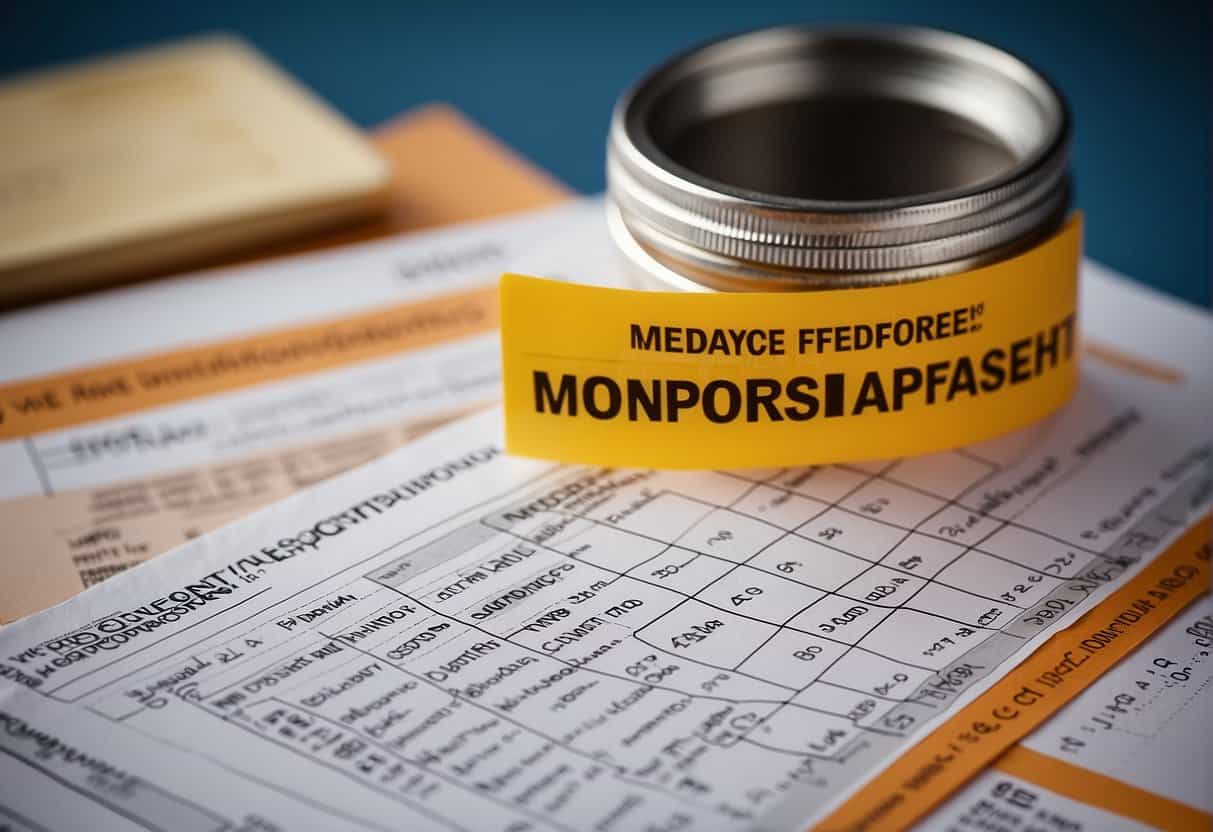Menopause is a natural biological process that marks the end of menstrual cycles in a woman’s life, typically occurring between the ages of 45 and 55. However, some women experience early menopause, which can happen any time before the age of 45. It’s important to recognize the signs of early menopause, as its onset can bring a myriad of physical and emotional changes. Hormonal shifts are the primary drivers of these changes, with estrogen and progesterone levels declining as the ovaries gradually reduce their function.
Early menopause can occur naturally or as a result of medical interventions such as surgery. Women might notice irregular periods or periods that cease altogether, along with symptoms like hot flashes, night sweats, and vaginal dryness. The condition also brings potential health risks and complications, such as an increased risk of osteoporosis and heart disease. Lifestyle adjustments and various treatments can help manage symptoms, and emotional support is pivotal during this transition. Understanding the role of medical interventions, lifestyle strategies, and psychological support can empower women to navigate early menopause effectively.
Key Takeaways
- Menopause typically occurs in midlife, but early menopause can happen before age 45.
- Recognizing symptoms like irregular periods and hot flashes is important in identifying early menopause.
- Managing early menopause involves a combination of medical treatment, lifestyle changes, and emotional support.
Understanding Early Menopause
When we talk about menopause occurring before the typical age range of 45 to 55 years, we’re entering the territory of early and premature menopause. These are significant health considerations that can impact our overall well-being and future plans.
Defining Early and Premature Menopause
Early menopause refers to the onset of menopause between the ages of 40 and 45. Premature menopause, also known as premature ovarian failure or primary ovarian insufficiency, occurs when menopause begins before the age of 40. It’s important to understand that premature menopause is a subset of early menopause, where the ovaries cease to function properly at a younger age than expected.
Causes of Premature Ovarian Failure
Several factors can contribute to premature ovarian failure, which leads to early and premature menopause:
- Genetics: A family history of premature menopause can increase our risk.
- Medical Treatments: Procedures like a hysterectomy or chemotherapy can precipitate menopause.
- Autoimmune Disease: Conditions where our body mistakenly attacks ovarian tissue.
The intersection of these factors means that the causes of early menopause can be complex and multifaceted. By exploring these aspects, we better understand the nuanced nature of early and premature menopause.
Identifying Symptoms
In recognizing early menopause, it’s crucial to differentiate between physical and psychological symptoms. We will explore the most common signs that could suggest the onset of this transition.
Physical Symptoms of Menopause
Hot Flashes & Night Sweats: Two of the most telling physical signs of menopause are hot flashes and night sweats. These sensations of intense warmth can occur during the day or night, often without warning, and are sometimes accompanied by flushing and perspiration.
Vaginal Dryness & Menstrual Changes: Vaginal dryness is a common complaint, leading to discomfort during sexual activity. Menstrual cycle changes also signal menopause, with many experiencing irregular periods before they cease completely.
Psychological Indicators
Mood Swings & Irritability: A fluctuation in emotional state, such as sudden mood swings and increased irritability, often accompanies menopause. These can be some of the early indicators and may have an impact on day-to-day interactions.
Anxiety & Depression: Feelings of anxiety and depression are not uncommon during this transition. If these feelings become overwhelming or persistent, it may be a sign of early menopause and a cue to seek professional guidance.
Hormonal Changes
Before we dive into specifics, it’s crucial to understand that early menopause is primarily a result of significant hormonal fluctuations. These hormonal changes are the underlying cause of the various symptoms we may experience during this transition.
Estrogen and Progesterone Fluctuations
Estrogen and progesterone are the key hormones involved in regulating our menstrual cycle. As we approach menopause, our ovaries begin to produce less estrogen and progesterone. This decrease can be erratic, leading to a variety of symptoms. Here’s a brief outlook on how these hormone levels can fluctuate:
- Early Perimenopause: Estrogen levels may actually rise temporarily before beginning to decline.
- Late Perimenopause: Dips in estrogen become more pronounced.
It’s these swings, especially in estrogen, that contribute to most of the menopausal symptoms we notice.
Impact on Fertility and Libido
The fluctuations in hormone levels directly affect our fertility. As our estrogen and progesterone levels become more unpredictable, our chances of becoming pregnant decrease.
When it comes to our libido, changes in hormone levels can also have an impact. Estrogen helps maintain the health of vaginal tissue and plays a role in sexual desire. As estrogen levels drop, we may experience:
- Decreased libido
- Vaginal dryness, which can affect comfort during sex
Understanding these changes can help us manage the transition with greater confidence and make informed decisions about our sexual health.
Health Risks and Complications
When experiencing early menopause, we must understand that it comes with an increased risk of certain health complications. Timely recognition and management can help mitigate these risks.
Osteoporosis and Bone Health
Osteoporosis is a significant concern for us as estrogen, a hormone that decreases drastically during menopause, plays a critical role in bone density. As estrogen levels drop, our bones may lose density more rapidly, increasing the risk of fractures. Bone loss can begin earlier than expected in women with early menopause, making it imperative to focus on calcium intake and weight-bearing exercises.
Cardiovascular Implications
Women with early menopause should be aware of the potential for developing cardiovascular disease, including heart disease and stroke. Estrogen is believed to have a protective effect on the heart, so a reduction in its levels may predispose us to these conditions. We should monitor our blood pressure, cholesterol levels, and maintain a heart-healthy lifestyle to combat these risks.
Other Potential Risks
Early menopause also raises the possibility of urinary incontinence and more frequent urinary tract infections due to the thinning of the urethra. Vigilance in personal hygiene and potentially pelvic floor exercises can be beneficial in managing these issues. Although not directly caused by early menopause, understanding our potential increased risk for breast cancer is also crucial. We should adhere to regular screenings and engage in preventative measures such as a balanced diet and regular physical activity to monitor and improve our overall health.
Lifestyle and Menopause Management
In managing the changes that come with menopause, our lifestyle choices play an influential role. We can take active steps in our diet and level of physical activity to navigate this phase with greater ease.
Dietary Adjustments
To minimize menopausal symptoms like hot flashes and weight gain, we should focus on a healthy diet that’s rich in fiber and other essential nutrients. Here are specific recommendations:
- Increase Fiber Intake: Aim for at least 25 grams of fiber per day through fruits, vegetables, and whole grains.
- Calcium and Vitamin D: These nutrients are vital for bone health post-menopause, so include fortified foods or consult with a healthcare provider about supplements.
- Balanced Diet: Ensure that our diet is balanced with a good mix of protein, healthy fats, and complex carbohydrates.
Physical Activity and Exercise
Engaging in regular exercise can help us manage our weight and reduce symptoms. Below is how we can incorporate exercise into our routine:
- Cardiovascular Activities: Include at least 150 minutes of moderate aerobic activity per week to promote heart health.
- Strength Training: Muscle-strengthening activities on 2 or more days a week help combat the muscle loss that can occur with menopause.
- Flexibility and Balance: Practices like yoga or Tai Chi can improve flexibility, balance, and mind-body relaxation.
Medical Interventions
When navigating early menopause, we often explore various medical interventions to manage symptoms. These interventions include hormone replacement therapy (HRT) and numerous non-hormonal medications and therapies. They aim to provide relief and improve quality of life.
Hormone Replacement Therapy (HRT)
Hormone Replacement Therapy (HRT) is frequently prescribed to alleviate menopausal symptoms by replenishing hormone levels. HRT can effectively treat common symptoms such as hot flashes and vaginal dryness. We usually customize the dosage based on your specific needs, which can include a combination of estrogen and progesterone, or estrogen alone if you’ve had a hysterectomy.
Non-Hormonal Medications and Therapies
In addition to HRT, there are non-hormonal medications and therapies that can offer relief for early menopause symptoms:
- Selective Serotonin Reuptake Inhibitors (SSRIs): Often used for mood swings and hot flashes.
- Blood Pressure Medications: Certain medications can help reduce hot flashes.
- Vaginal Moisturizers and Lubricants: These can alleviate vaginal dryness without hormones.
Some people might opt for alternative treatments like herbs, although it’s vital to discuss these with us to ensure they’re appropriate and won’t interfere with other medications.
Psychosocial Factors and Support
Menopause can bring a shift not only in our physical health but also in our psychosocial well-being. We understand that support, both emotional and practical, is fundamental in managing the mental health challenges and relational dynamics that may arise during this time.
Mental Health and Well-Being
Menopause is a period of change that can trigger a gamut of emotions, from anxiety to depression. It’s common for us to experience mood swings and feelings of sadness. Support groups play a vital role in our ability to cope by providing a space where we can share experiences and strategies for managing psychological distress. Engaging with others who understand what we’re going through can reinforce our emotional resilience and provide us with a sense of community.
Key psychosocial factors affecting our well-being during menopause:
- Anxiety: We may feel more anxious than usual, worrying about our health and future.
- Depression: Feelings of sadness and loss can occasionally progress to depression, warranting professional support.
- Support Groups: Joining groups, either in-person or online, can offer us reassurance and tips for navigating this transition effectively.
Navigating Relationships and Intimacy
Menopause can significantly affect our intimate lives. We might notice changes in libido, which can lead to sexual dysfunction or relationship issues. Open communication with our partners is crucial in addressing these changes together. If sex is challenging, we might consider exploring other forms of intimacy or seeking guidance from a therapist who specializes in sexual health. Understanding that changes in sex drive are a normal part of this phase can help us adjust our expectations and bring a new level of closeness in our relationships.
Here’s what we can do to foster intimacy during menopause:
- Communication: We must talk openly about our needs and concerns with our partners.
- Libido Changes: Understand that fluctuations in sex drive are normal, and we can explore other forms of intimacy.
- Professional Help: If sexual dysfunction is affecting our relationship, professional counseling or therapy may be beneficial.
Through awareness and support, we can navigate the psychosocial challenges of menopause with confidence and clarity.
Alternative Approaches and Remedies
When facing early menopause, we may consider non-hormonal strategies to manage symptoms. Let’s explore reputable alternative remedies, focusing on herbal supplements and vitamins, along with mind-body techniques.
Herbal Supplements and Vitamins
Herbs and vitamins have pivotal roles in menopause management. Research from the Cleveland Clinic suggests a diet rich in calcium and vitamin D is essential for bone health as estrogen levels decline. Furthermore, specific phytoestrogens like soy isoflavones might help with hot flashes and vaginal dryness, as found in a systematic review.
- Vitamin E may provide relief for some menopausal symptoms.
- Herbs like black cohosh could be effective in reducing hot flashes.
Remember, before we start any supplement regimen, consulting a healthcare provider is a must to ensure safety and appropriateness.
Mind-Body Techniques and Self-Care
Engaging in self-care practices and mind-body activities is beneficial for our overall wellbeing during this transition. Techniques such as cognitive behavioral therapy (CBT) and relaxation can alleviate symptoms of menopause.
- Regular exercise, including kegel exercises, supports weight management and pelvic floor strength, which can be affected by hormonal changes during menopause.
Evidence supports the efficacy of mind-body practices—like meditation and yoga—in reducing stress and improving mood, which could be particularly helpful for us during early menopause. The National Center for Complementary and Integrative Health cites the value of mind-body interventions in the management of menopausal symptoms.
By combining these alternative approaches with lifestyle adjustments, we can create a comprehensive management plan for early menopause.
Planning for the Future
When facing early menopause, we need to consider our options carefully regarding family expansion and our long-term well-being. Our choices can influence not just our immediate future, but also our health as we age.
Family Planning and Adoption
If we desire biological children, exploring fertility options early is crucial since the window for treatments like egg freezing or IVF might be limited. These options often have higher success rates when implemented during the early stages of perimenopause. Furthermore, adoption is a fulfilling alternative to start or grow our families, providing the chance to offer a loving home to a child in need.
- Fertility Treatments:
- Egg freezing
- In Vitro Fertilization (IVF)
- Adoption: A choice that requires thoughtful consideration and preparation.
Long-Term Health Strategies
Early menopause increases our risks for certain health conditions, such as osteoporosis and cardiovascular disease. It’s essential for us to develop a health maintenance plan that includes lifestyle changes and medical screenings.
- Osteoporosis Prevention:
- Regular bone density tests
- Calcium and vitamin D intake
- Cardiovascular Health:
- Routine heart health screenings
- Diet and exercise programs tailored to decrease heart disease risk
By adopting these proactive measures, we can help secure our health and nurture fulfilling lives, irrespective of the challenges early menopause may present.
Frequently Asked Questions
In this section, we address specific concerns you may have about the early signs of menopause, aiming to clarify the symptoms during different age stages and the factors that could precipitate this life change.
What are common symptoms indicating the onset of menopause before age 40?
The onset of menopause before age 40 is considered premature menopause, and common symptoms include hot flashes, irregular periods, vaginal dryness, and mood swings. These symptoms are similar to typical menopause symptoms, but they occur at a younger age.
How can I recognize early menopause in my 30s?
In your 30s, recognizing early menopause may be challenging, but symptoms to look out for are similar to standard menopause symptoms: irregular or missed periods, decreased fertility, and changes in sexual function, among others.
Are there specific signs that suggest the beginning of menopause in one’s 20s?
Menopause in one’s 20s is rare and may indicate a condition known as primary ovarian insufficiency. Signs are akin to traditional menopausal symptoms, such as hot flashes, night sweats, and mood changes. Consulting a healthcare provider is essential for a thorough evaluation.
Which symptoms are indicative of early menopause at 35?
At 35, early menopause could manifest through symptoms like changes in menstrual regularity, sleep disturbances, and fluctuations in weight and metabolism. These changes might suggest the body is transitioning towards menopause.
At the age of 45, what are the typical signs that may indicate menopause?
At 45, typical signs of menopause could be more frequent. You might experience thinning hair, dry skin, and a loss of breast fullness, in addition to the more common symptoms like hot flashes and changes in menstrual cycles.
What factors could potentially lead to the early onset of menopause?
Genetics, lifestyle choices, and certain medical treatments are factors that could lead to the early onset of menopause. Autoimmune diseases, chromosome abnormalities, and removal of the ovaries can induce menopause earlier than the typical age range.





